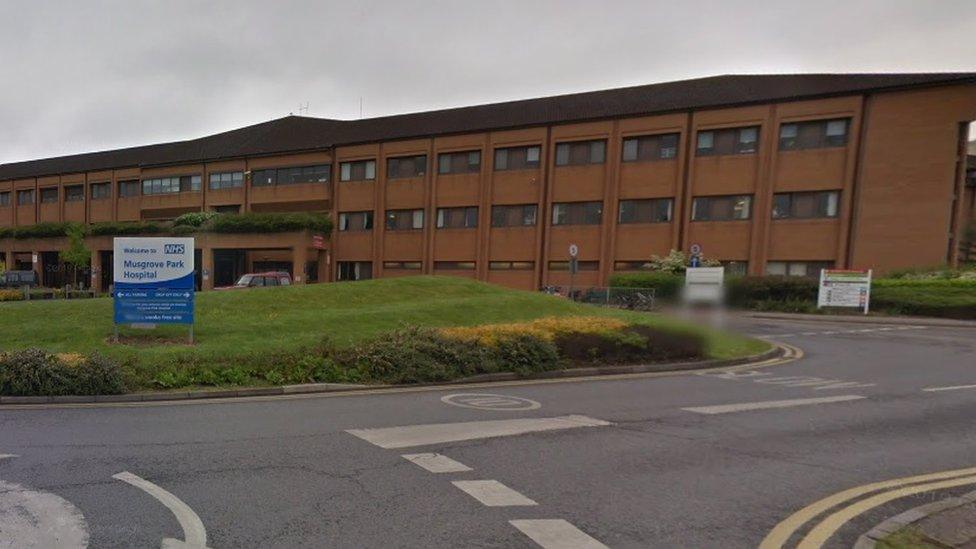New varicose vein room frees up hospital theatres
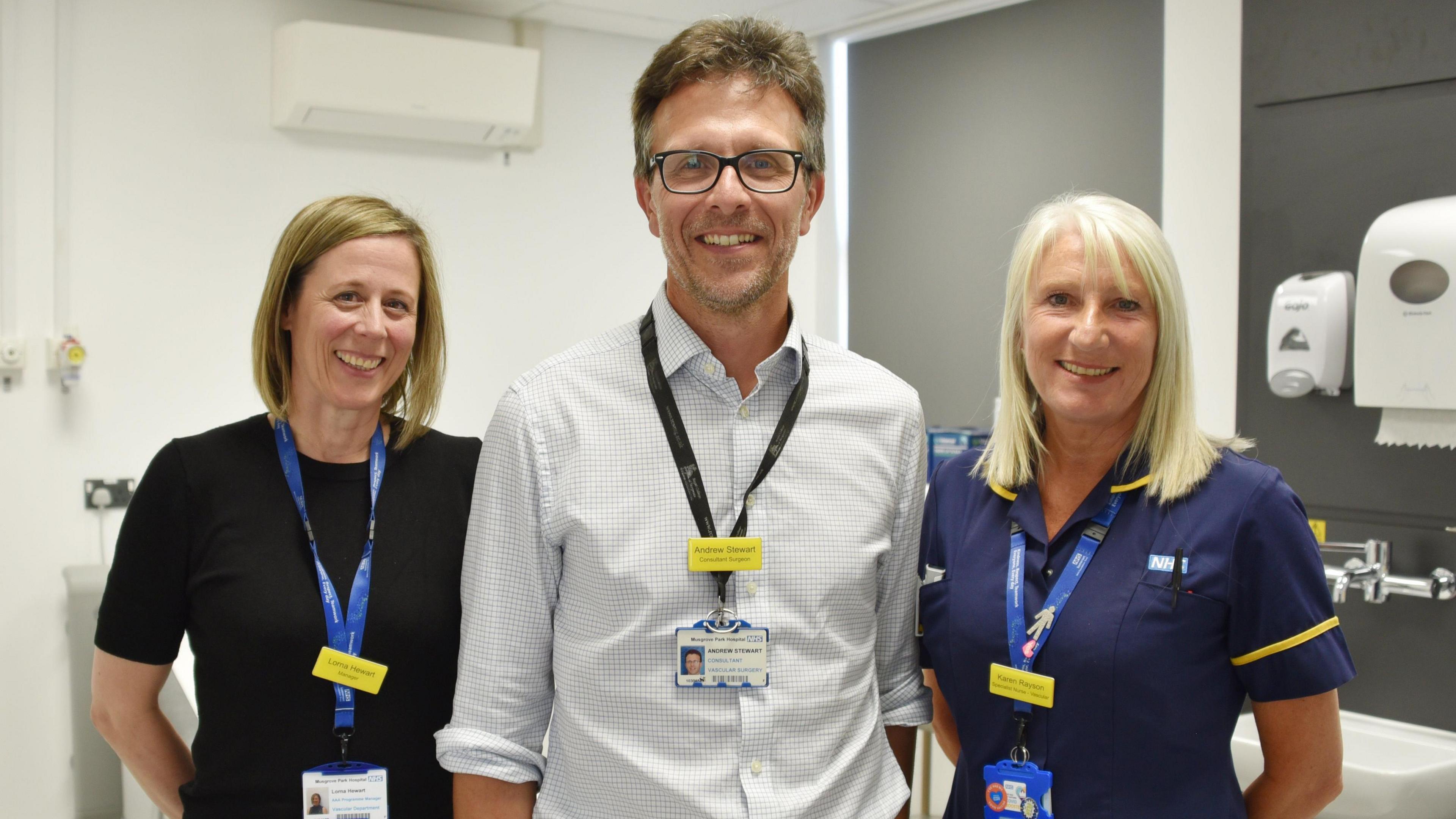
Mr Stewart (M) and Ms Rayson (R) say the new treatment facility frees up time and resources
- Published
Patients undergoing treatment for varicose veins are now able to go home within a few hours of a procedure.
Varicose veins are swollen, twisted veins under the skin, usually occurring on the legs or feet. They are treated by vascular surgeons using a variety of procedures.
A new treatment room at Musgrove Park Hospital in Somerset was allowing patients to be treated under local anaesthetic in an outpatient setting, rather than taking up a surgical theatre slot, staff said.
It meant staff were able to prevent long wait times in the hospital and provide a better continuity of care by allocating a surgeon, they added.
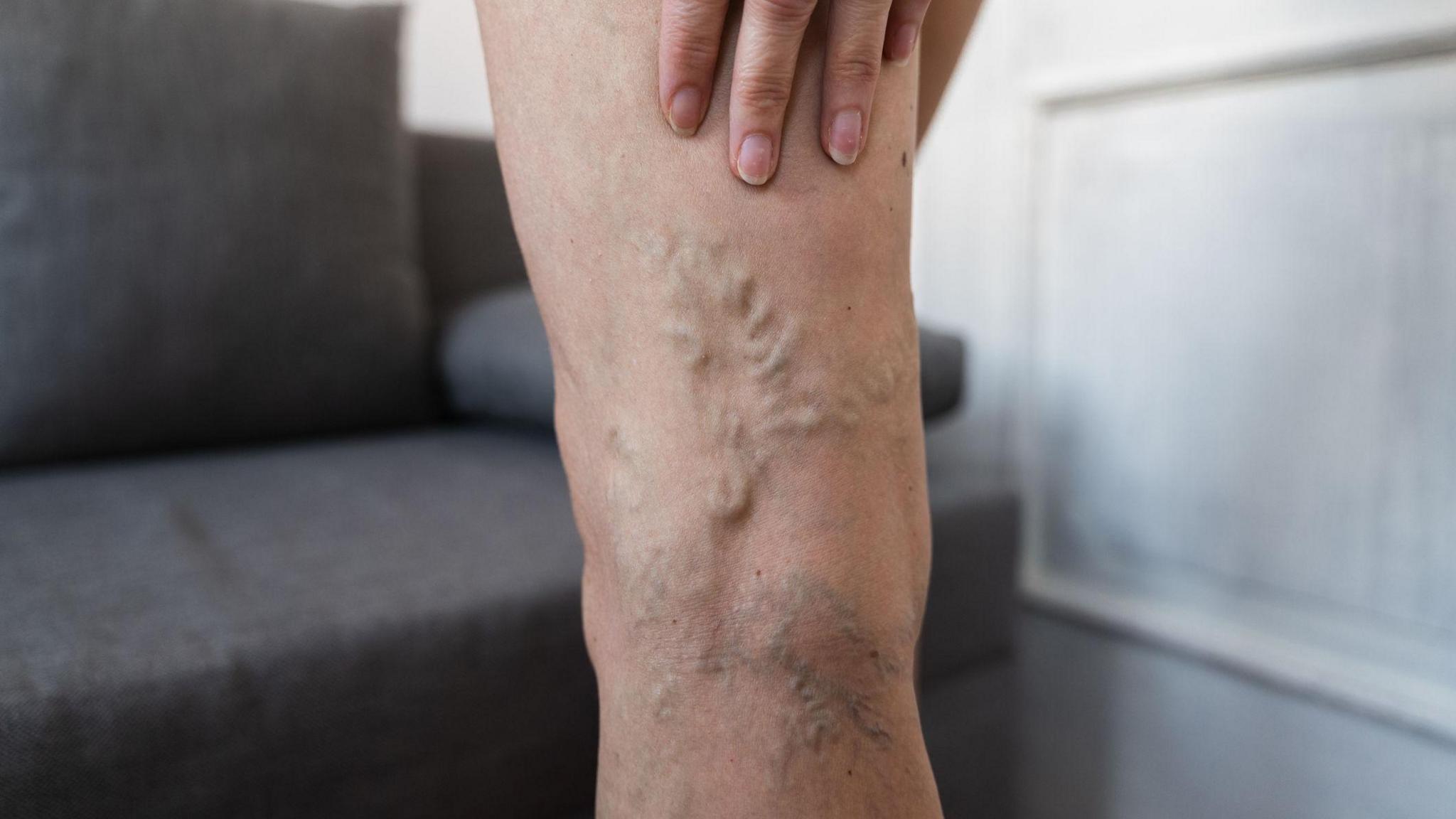
Varicose veins are caused by increased blood pressure in the veins
The condition is treated using "relatively straightforward procedures" including endothermal ablation, where a small heating fibre is threaded into the vein, surrounded by local anaesthesia, which leads to the vein eventually disappearing from the surface of the skin.
Another course of treatment is foam sclerotherapy, which is usually carried out without need for any anaesthesia, where a surgeon injects foam into the affected vein through fine needles guided by an ultrasound.
'Quick recovery'
Karen Rayson, a vascular nurse specialist at Somerset NHS Foundation Trust, said the new treatment room had been used to perform these procedures for about 18 months.
"By moving to our new clinic room in the vascular department, we’ve been able to free up a whole operating list in our day surgery centre for other procedures, which can only help to reduce waiting times across the board," she said.
"Instead of all the lengthy pre-theatre checks, our patients can now arrive just 30 minutes before their procedure, have their treatment under a local anaesthetic, followed by a quick recovery."
Ms Rayson added one of the main benefits to patients was the "continuity of care", as they saw the same colleagues during their treatment in a less stressful environment.
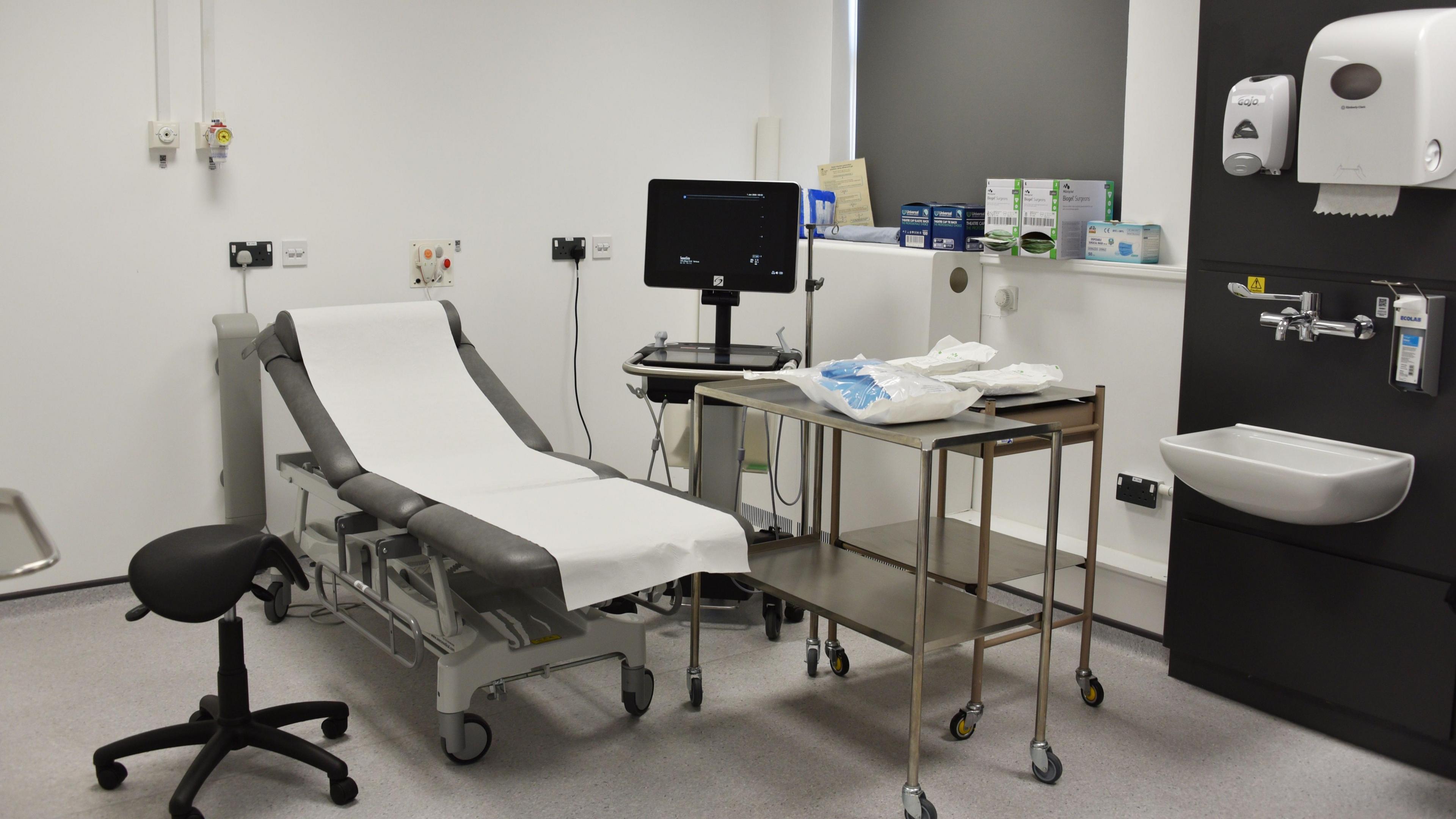
So far, the room has been used to treat more than 100 patients
Andrew Stewart, a consultant vascular surgeon at Somerset NHS Foundation, said previously not having an outpatient facility at the hospital meant more patients were having to undergo the treatment under general anaesthetic.
"This was something we were keen to address when we moved, so we could maximise the number of patients we could treat under local anaesthetic," Mr Stewart said.
"Overall, it’s great news for our patients, colleagues and the hospital as a whole, as we’ve managed to free up space in our operating theatres for emergency and other planned operations."
Follow BBC Somerset on Facebook, external and X, external. Send your story ideas to us on email or via WhatsApp on 0800 313 4630.
Related topics
Related Internet Links
- Published25 July 2023
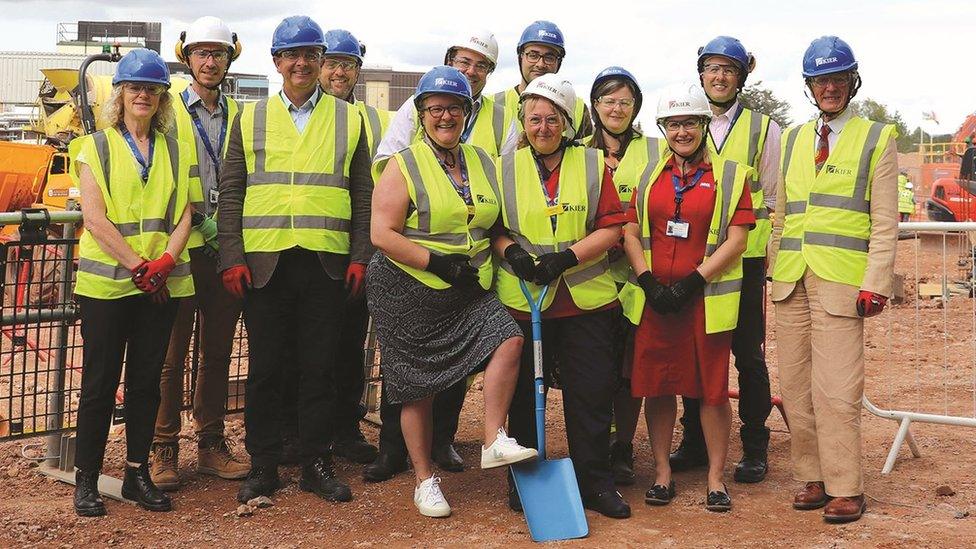
- Published1 September 2020
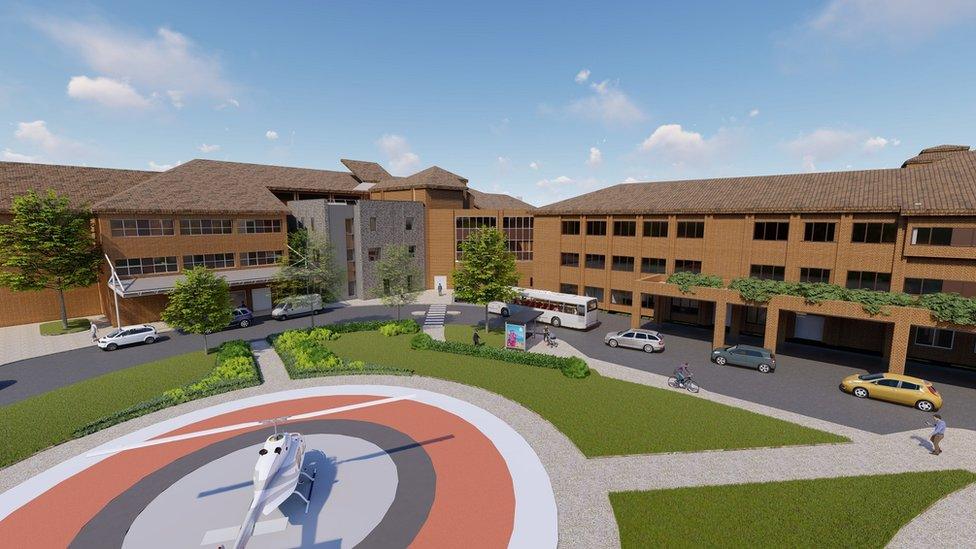
- Published7 November 2022
